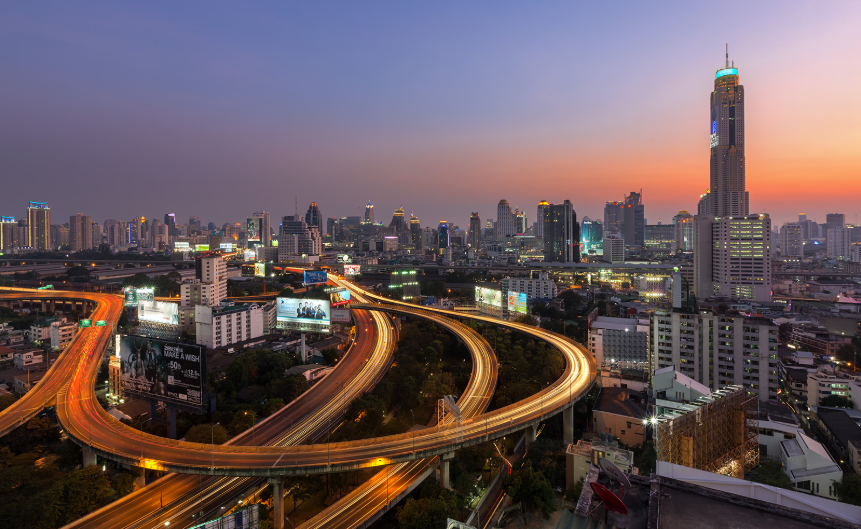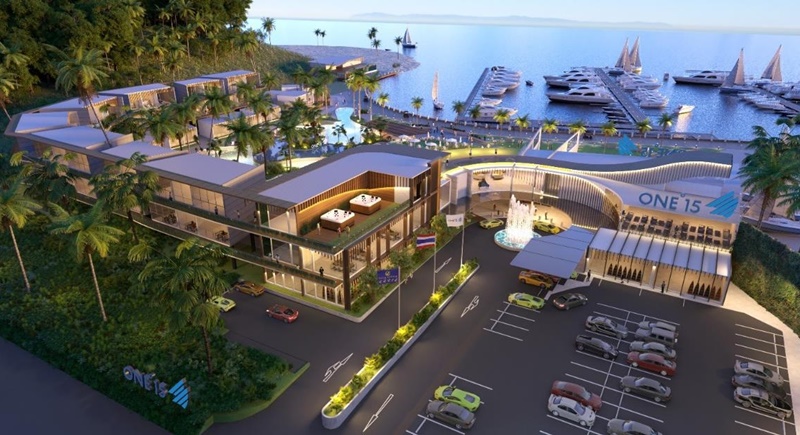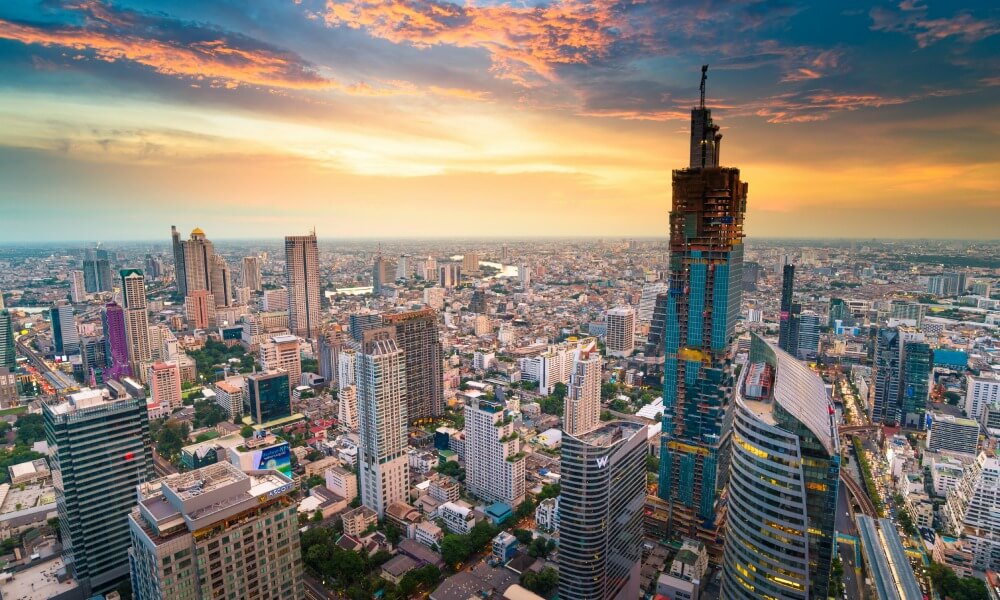Great Outlook for the Thai Economy in 2018
2018 looks promising for Thailand, which will see its growth consolidate. According to the latest Thailand Economic Monitor report prepared by the World Bank, the Thai economy is expected to jump from 3.9% in 2017 to 4.1% in 2018. Never seen since 2012.
While exports were already showing very good results for 2017 (+ 7.5%) we recorded a jump of 11.3% for the first quarter of 2018. A record increase since 2011.
While solid export growth (71% of GDP) marks the economic recovery, the general rise in household consumption and tourism has led to an increase in imports of goods.
3 projects that will transform the Thai economy
The Thai government is much ambitious and will not stop there. Make Thailand a developed country. This is the government’s ambitious new plan for the next few years, said Deputy Minister Somkid Jatusripitak. Thailand’s economic transformation is based on three main strategies.
1. Mega infrastructure projects
At the heart of this strategy, the government has promised a sustained investment effort in the development of megaprojects:
- Bangkok will see its metro network evolve: a total of 555 km of metro lines will be built by 2029. The two BTS lines will be extended to the Lam Lukka suburb, and to Suvarnabhumi International Airport. The blue line will be extended from Hua Lampong to Lak Song, and 3 new subway lines will be extended to Nakhon Pathom and a new one will be created linking Don Muang Airport to Samut Songkram.
- The development of the high-speed rail network with lines stretching – among others – from Bangkok to Chiang Mai, Nong Khai, Udon Ratchathani, Trat, etc. One of them, 873 km long, will connect Thailand, Laos and China.
- 5.5 billion THB will be invested over the next 15 years, in the expansion and renovation of six major airports: Phuket, Suvarnabhumi, Don Muang, U-Tapao (Rayong) – Pattaya, Krabi and Chiang Rai (Mae Fah Luang).
- Between 2017 and 2036, the government will invest 2,100 Billion THB for the development of 21 new motorways for a total of 6,612 km.
Read also: 10 Projects which will make Bangkok be “THE place to be!”
2. The development of the Eastern Economic Corridor
Massive investment in the Eastern Economic Corridor region is the second key point. Over the next 5 years, more than $ 43 billion will be invested. Much will be dedicated to modernizing and improving the passenger and freight transportation network in the region, including the extension of the Bangkok-Pattaya Highway to Rayong and railways, the optimization of several deep-water ports, airports, etc. The development of these transport networks will enable the region to take a new course in terms of innovation and industrialization.
Projects under this strategy include:
- The construction of a high-speed train Bangkok-Rayong linking three airports: Don Muang, Suvarnabhumi and Pattaya U-Tapao airport. For the realization of this project, 225 billion THB will be invested.
- Improvement of the U-Tapao International Airport to make it the hub of the region.
- The development of the deep-sea ports of Mab Ta Phut and Laem Chabang.
This strategy also aims to make this region a major industrial hub. A series of measures will be put in a place to make this area more attractive, and encourage companies to come and settle there. Among these new measures, corporate tax exemptions for 15 years, a fixed income tax of 17% for local and foreign employees or tax exemptions on import and investment. Many major international groups have already been seduced – the giant of E-commerce Alibaba, Toyota, or Airbus which is partnering with Thai Airways to create a maintenance centre at U-Tapao airport (Pattaya – Rayong) worth $ 338 Million.
3. Transition to a digital economy
If Thailand wants to see its economy grow in the long run, digitalization and change must be at the heart of all strategies, according to the latest World Bank report.
In 2017, Thailand ranked 52nd out of 128 in the World Innovation Index. With a policy largely favourable to innovation, the country intends to attract a large number of entrepreneurs and will establish itself as a major pole of innovative investments.
Among the major projects “Thailand 4.0”. This 20 years economic plan aims to build an economy of innovation and knowledge, to make Thailand a global digital leader. The strategy is structured around different axes:
- Move from traditional agriculture to smart and modern agriculture to use less water and land using more machines while increasing production.
- Develop new technologies with the launch of a hub for creative innovation, which will become the centre of the creation of startups in the region. This hub is expected to create 10,000 startups in the next 10 years.
- Promote education and R&D in the agri-food sector, health and biotechnologies, but also artificial and automated intelligence in industries.
- Enhance broadband Internet in remote areas, including the installation of a sub-wired network connecting Thailand, Hong Kong and China.
- Support online commerce, and encourage industries to adopt digital technology faster, and move to e-commerce for some.
In total, 39.5 billion EUR will be invested in this digital revolution.
“Thailand will not be able to achieve developed country status unless it is able to meet the challenges of innovation,” Said Dr Kobsak Pootrakool, Minister attached to the Prime Minister’s Office. As Thailand seeks to change its economic status, Research and Development, adoption of new technology and innovation will play roles.



















